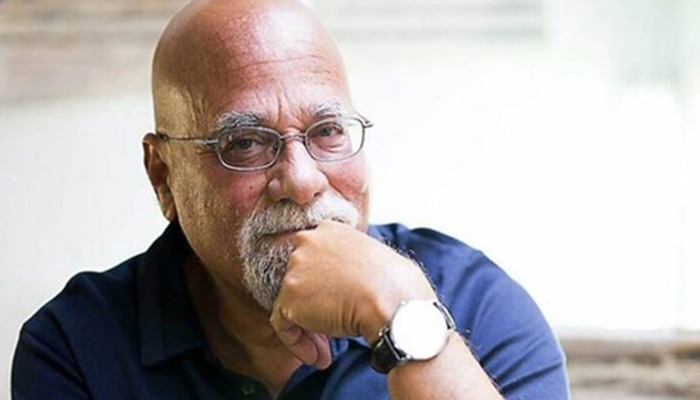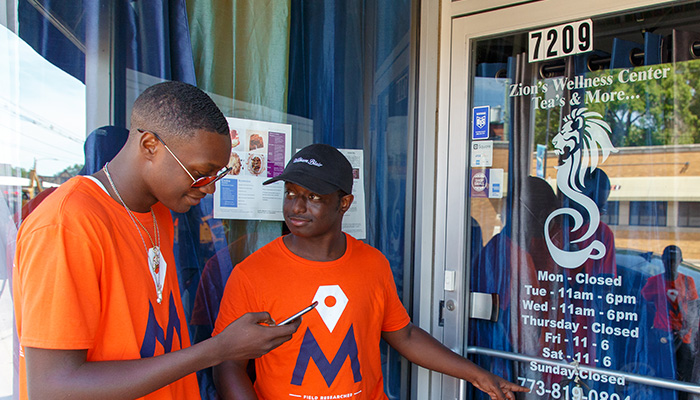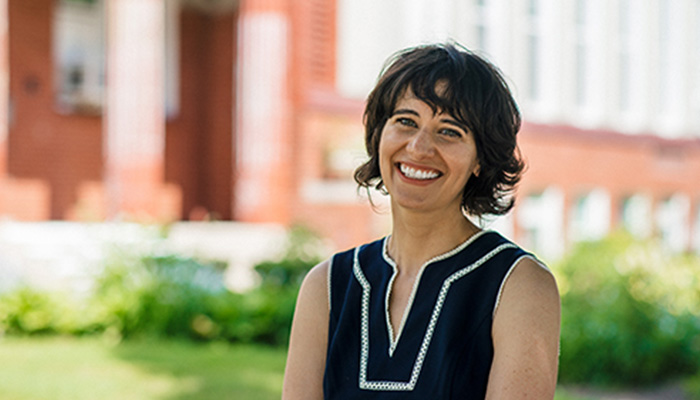Brayboy Named New SESP Dean
Bryan McKinley Jones Brayboy began on June 1 as dean of the School of Education and Social Policy. He succeeds David Figlio, who stepped down in May 2022 to become provost at the University of Rochester; professor Dan P. McAdams has served as interim dean.
Brayboy was previously President’s Professor at Arizona State University’s School of Social Transformation, vice president of social advancement, and senior adviser to the university’s president.
“Extending efforts to build toward a more just future is part of what drew me to SESP,” Brayboy says, adding that he’s excited about the school’s focus on the intersections between human development, teaching and learning, and policymaking.
Brayboy has also been named Carlos Montezuma Professor of Education and Social Policy. His scholarship focuses on race, diversity, Indigenous experiences in education, and the ways that knowledge systems inform higher education. He has 15 years of experience as a skilled administrator leading faculty teams and building relationships among local, national, and international communities.
A member of the National Academy of Education and a fellow of the American Educational Research Association, Brayboy has authored or coauthored more than 100 scholarly documents, including 9 edited or authored volumes, dozens of articles, book chapters, and policy briefs for the US Department of Education, the National Science Foundation, and the National Academy of Sciences.
Brayboy, a member of the Lumbee Tribe of North Carolina, earned his bachelor’s degree at the University of North Carolina at Chapel Hill and his master’s and doctoral degrees at the University of Pennsylvania.
His spouse, Doris Warriner, is a linguistic anthropologist of education whose research focuses on processes of mobility and displacement in relation to language, literacy, and learning.
Read more about Brayboy in the next issue of SESP Magazine.

Schwandt Finds Pandemic “Baby Bump”
Working from home may have boosted fertility among college-educated women, according to a National Bureau of Economic Research working paper coauthored by economist Hannes Schwandt, associate professor of human development and social policy. The subtle “baby bump” in the US caught researchers by surprise, as early forecasts had predicted a crash in birth rates at the beginning of the COVID-19 pandemic. The quick economic recovery and the rise of remote work may have changed the trajectory, the authors said.
An economist who studies the relationships among health, wealth, and overall well-being, Schwandt has a keen eye for important societal trends. His research has investigated everything from how air pollution affects fetal development to the effects of school shootings on mental health and of unemployment on fertility.

In Memoriam: Roger Schank
Roger Schank, the outspoken theorist and researcher in artificial intelligence and cognitive science who helped create the field of learning sciences, died on January 29 at age 76.
Schank founded the interdisciplinary Institute for the Learning Sciences at Northwestern in 1989, and his pioneering ideas led to the nation’s first doctoral program in learning sciences, at SESP.
The PhD program, founded and directed by former dean Roy Pea, has since been replicated and is now offered by 65 universities around the world. In 2016 SESP became the nation’s first school to offer learning sciences at the undergraduate level.
Schank was known for visionary and provocative views, including on his aptly titled Education Outrage blog. In his book Teaching Minds: How Cognitive Science Can Save Our Schools, he argued that cognitive abilities are more important than subjects like algebra and chemistry.
“We need to begin teaching people to reason well enough to make sensible political and life choices,” he wrote in 2012. “This is a very important idea in a democracy.”

A New Era for MAPSCorps
SESP has launched a new iteration of MAPSCorps, the national model for training and hiring high school and college students to work as commu- nity data scientists in STEM fields. The initiative trains young people from underserved communities to collect, analyze, and use data to make their communities healthier and more vibrant.
MAPSCorps began in 2008 and grew out of the South Side Health and Vitality Studies, led by Stacy Tessler Lindau at the University of Chicago. It’s now part of the Digital Youth Network lab of Nichole Pinkard, the Alice Hamilton Professor of Learning Sciences at SESP.
“We’ll continue to train our youth to gather high-quality data about a wide range of community assets. That information will drive key decisions and policies across education, employment, and other sectors,” Pinkard says. “It’s an end-to-end solution, with youth at the helm, for deeply understanding communities and identifying points for meaningful intervention.”

New Research on Navigating the Risks of Party Rape
Women who have experienced sexual violence at fraternity parties have often been blamed for what happened to them. But new research on an elite college campus suggests that women in sororities are becoming less likely to fault the victim and more inclined to hold institutions accountable.
Women on that campus (not named due to research ethics and confidentiality rules) viewed institutional structures within the National Pan-Hellenic Council and the university as responsible for creating risky party environments conducive to sexual assault, according to a new study led by associate professor Simone Ispa-Landa.
“The big surprise for me was the absence of victim-blaming narratives and the focus on institutions as the source of the problem,” Ispa-Landa says. “We also uncovered tactics women use to protect themselves and others. Instead of shaming young people for wanting to socialize at parties, we should be creating safer conditions for them.”
The study, published in the journal Sociology of Education, is based on findings from interviews with 68 sorority women, including 53 rank-and-file members and 15 who had special roles tasked with making parties safer. “Navigating the Risks of Party Rape in Historically White Greek Life at an Elite College: Women’s Accounts” was coauthored by Sara E. Thomas (PhD20), a research associate at Northwestern’s Feinberg School of Medicine.
